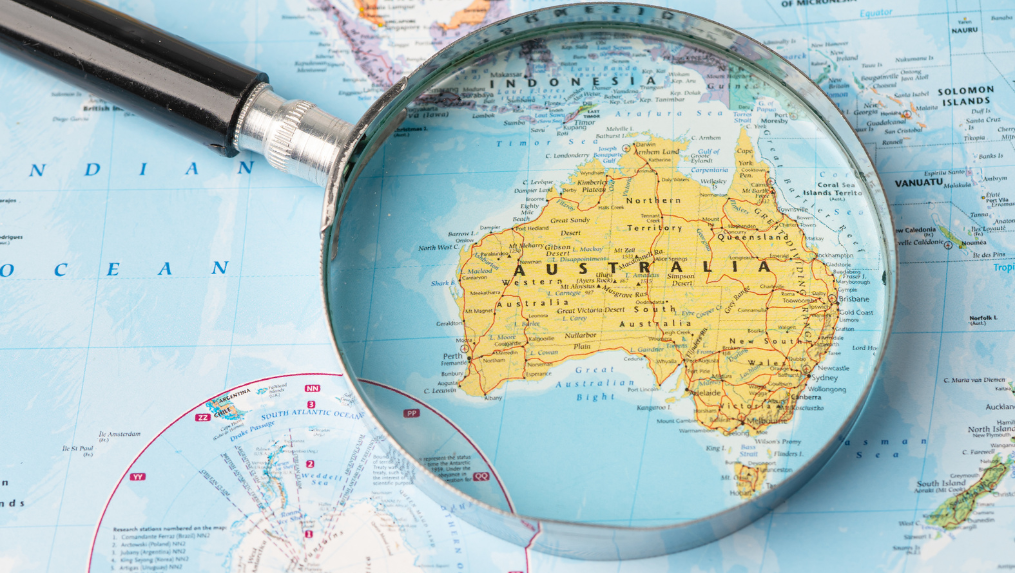While the distance between the two countries may seem vast, there are several pathways available for individuals seeking the easiest way to travel from Nigeria to Australia. In this comprehensive guide, we will explore various travel options, including flights, visa considerations, and practical tips to facilitate a seamless journey.
Choosing the Right Flight:
The most common and efficient way to travel from Nigeria to Australia is by air. Several international airlines operate flights connecting major cities in Nigeria to various airports in Australia. Here are key considerations when choosing a flight:
Direct Flights vs. Connecting Flights:
Direct flights are the most straightforward option, offering a non-stop journey from departure to arrival. However, connecting flights may provide more flexibility in terms of airlines, schedules, and potentially lower costs.
Major Airports:
In Nigeria, major international airports such as Nnamdi Azikiwe International Airport (ABV) in Abuja and Murtala Muhammed International Airport (LOS) in Lagos serve as departure points. In Australia, airports in Sydney (SYD), Melbourne (MEL), and Brisbane (BNE) are popular arrival destinations.
Airlines:
Leading international airlines that operate flights between Nigeria and Australia include Emirates, Qatar Airways, Etihad Airways, and Singapore Airlines, among others. Choosing a reputable airline with good connectivity and customer service is advisable.
Flight Duration:
The journey from Nigeria to Australia involves a considerable flight duration due to the distance. Direct flights can take approximately 20 to 24 hours, while connecting flights may extend the travel time.
Travel Seasons:
Consider the time of year for your travel, as peak seasons may impact ticket prices and availability. Planning in advance and booking during off-peak times can be cost-effective.
Visa Considerations for Nigerian Travelers:
Before embarking on a journey from Nigeria to Australia, understanding and fulfilling visa requirements is crucial. Australia offers various visa categories, each tailored to different purposes of travel. Here are key considerations:
Visitor Visa (Subclass 600):
For short-term visits such as tourism or family visits, the Visitor Visa is applicable. It allows stays of up to three, six, or 12 months, and the application can be lodged online.
Student Visa (Subclass 500):
Individuals planning to study in Australia should apply for a Student Visa. This requires confirmation of enrollment from an Australian educational institution, proof of financial capacity, and meeting health and character requirements.
Working Holiday Visa (Subclass 417 or 462):
Young individuals seeking a working holiday experience in Australia can explore these visa options. Eligibility criteria include age requirements and proof of financial capacity.
Transit Visa:
If your journey involves a layover in Australia, a Transit Visa may be required, depending on the length of your stay in the country. This visa allows travelers to transit through Australia for up to 72 hours.
Electronic Travel Authority (ETA) or eVisitor: Citizens of eligible countries, including Nigeria, can apply for an ETA or eVisitor online, streamlining the process for short-term visits.
Application Process:
Applying for a visa involves submitting the required documentation, completing the application form, and paying the relevant fees. Understanding the specific requirements for each visa category is essential for a successful application.
Practical Tips for a Smooth Journey:
Beyond flights and visa considerations, there are practical tips to enhance the overall travel experience from Nigeria to Australia:
Health Precautions:
Prioritize your health by ensuring vaccinations are up-to-date, and consider travel insurance for medical coverage. Long-haul flights can be physically demanding, so staying hydrated and moving during the journey is important.
Currency and Finances:
Familiarize yourself with the Australian currency (Australian Dollar) and consider carrying a mix of payment options such as credit cards, cash, and travel cards. Notify your bank of your travel dates to avoid any issues with card transactions.
Time Zone Adjustment:
Australia has multiple time zones, so be prepared for potential jet lag. Adjust your sleep schedule before departure, stay hydrated, and expose yourself to natural light upon arrival to help regulate your body clock.
Local Customs and Etiquette:
Research Australian customs and etiquette to ensure a respectful and enjoyable stay. Australians are known for their friendliness, so embracing the local culture enhances the travel experience.
Weather and Clothing:
Australia experiences diverse climates, so pack accordingly. Check the weather forecast for your destination and include versatile clothing suitable for various conditions.
Local Transportation:
Familiarize yourself with local transportation options at your destination. Australia has well-developed public transportation systems in major cities, and renting a car may be necessary in more remote areas.
Emergency Contacts:
Save emergency contacts, including the local embassy or consulate, in your phone. Familiarize yourself with emergency services and healthcare facilities in your destination.
Cultural Attractions:
Australia boasts a rich tapestry of cultural attractions, natural wonders, and vibrant cities. Plan your itinerary to include iconic landmarks, museums, and experiences that align with your interests.
Easing the Travel Process:
To ease the travel process further, consider utilizing online resources and tools:
Flight Comparison Websites:
Use flight comparison websites to find the best deals on flights, compare prices, and select the most suitable itinerary for your journey.
Government Travel Advisory:
Check the travel advisories and safety information provided by the governments of Nigeria and Australia. Stay informed about any updates or alerts that may impact your travel plans.
Online Visa Application Portals:
For visa applications, leverage online portals provided by the Department of Home Affairs in Australia. These portals streamline the application process and provide updates on the status of your application.
Travel Apps:
Download travel apps that offer real-time information on flight schedules, weather updates, local transportation options, and tourist attractions. These apps can enhance your travel experience and provide convenience on the go.
Navigating the Pathways to Australia
Embarking on a journey from Nigeria to Australia is an exciting and rewarding endeavor that offers the prospect of exploring a new culture, gaining educational experiences, or enjoying a memorable holiday. Understanding the logistics involved in travel, including flights, visa considerations, and practical tips, contributes to a smoother and more enjoyable journey.
As the gateway to Australia beckons, individuals from Nigeria can approach their travel plans with confidence, armed with knowledge about the easiest ways to reach their destination. Whether for academic pursuits, a working holiday adventure, or a leisurely exploration of Australia’s wonders, careful planning and preparation pave the way for a fulfilling and seamless travel experience.
Australia, with its diverse landscapes, warm hospitality, and unique cultural offerings, awaits those who embark on this remarkable journey. The easiest way to travel from Nigeria to Australia is not just a physical journey; it is an opportunity for personal growth, discovery, and the creation of lasting memories in the Land Down Under.
Do you need an Australian Visa?
Contact our team of skilled immigration lawyers to discuss your visa and immigration needs.
Call us on +234 812 5505 986 or WhatsApp us at +234 818 1547 085 for immediate assistance with your situation. We are available to assist you in person, over the phone, or online.





